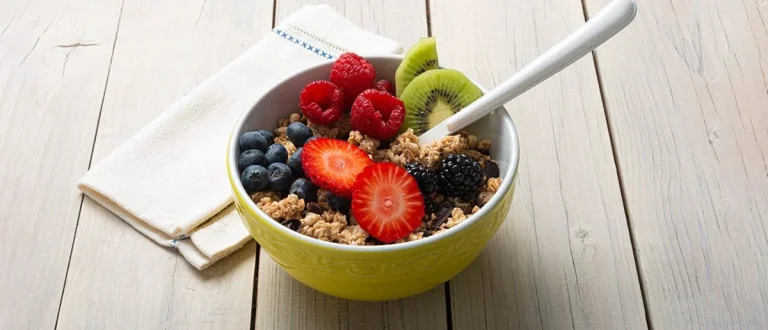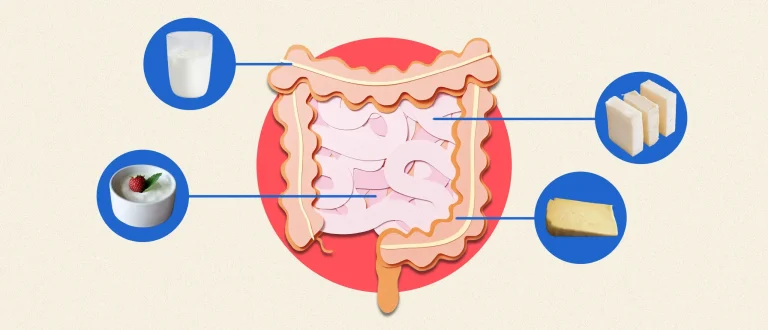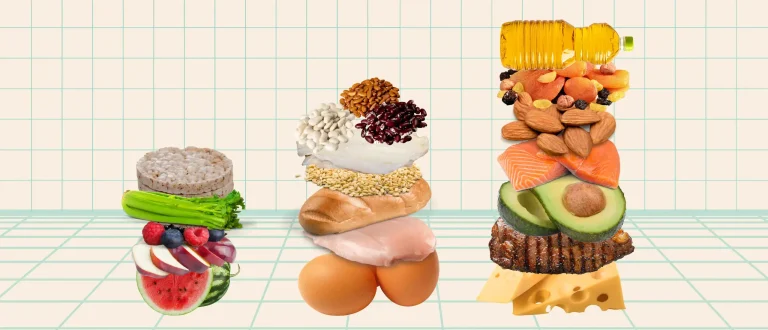Chronic inflammation is directly tied to a whole host of health destroyers; everything from heart disease and arthritis to erectile dysfunction, and low testosterone. And while there is still some debate about exactly how big of a role your diet can play in reducing inflammation, experts have identified some foods that fuel it, like processed meats, sugary beverages, and refined carbs.
They’ve also honed in on foods that help prevent the chronic inflammation that can shorten your healthspan and lifespan.
Recently, functional medicine doctor Mark Hyman, M.D., author of the forthcoming Young Forever, shared 11 foods that fight inflammation in an Instagram post. We recognized a few, but others surprised us.
EAT FOR LONGEVITY
Here’s Hyman’s list of the best anti-inflammatory foods.
1. Olive Oil
Extra virgin olive oil contains oleocanthal, a compound which researchers believe has similar anti-inflammatory properties to Ibuprofen. Oleocanthal may reduce inflammation in conditions including neurodegenerative disease, joint degenerative disease, and some cancers (1).
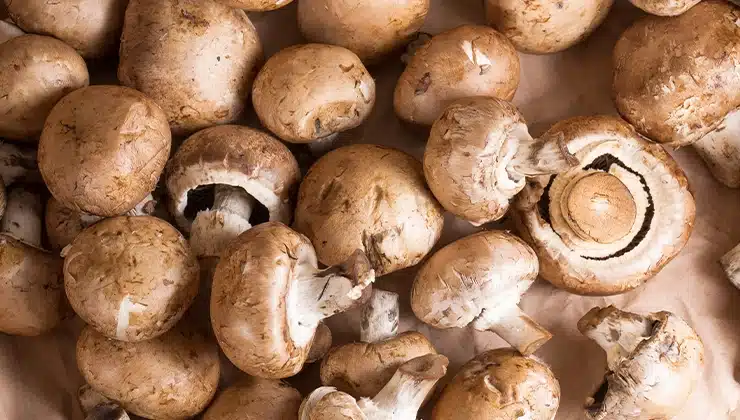
2. Mushrooms
Not magic mushrooms (although one study suggests they may also ease inflammation). Hyman is talking about everyday fungi, which contain several anti-inflammatory compounds. Among them: polysaccharides, fatty acids, carotenoids, and, vitamin B2 and vitamin D (2).
Polysaccharides in particular have been shown to regulate oxidative stress and inflammation and may help treat people with inflammatory bowel disease (3).
3. Berries
All berries—but especially blueberries—are packed with flavonoids, which act as antioxidants and interfere with metabolic events that cause inflammation (4).
Flavonoids suppress inflammatory cytokines (immune cells) and reduce the accumulation of nitric oxide, which in excess can lead to inflammation. Flavonoids also reduce reactive oxygen species, unstable oxygen molecules that play a role in progressing inflammatory disorders (4).
Berries are also the most important source of anthocyanins in your diet. Research suggests anthocyanins fight inflammation by inhibiting pro-inflammatory factors and reducing toll-like receptor 4 (TLR4), which initiates your innate immune response and is responsible for acute and chronic inflammatory disorders when activated (5).

4. Dark Chocolate
It’s no Snickers, but the bitter and less sweet dark chocolate offers flavanols—a subclass of flavonoids—and antioxidants to reduce inflammation.
Research suggests that you should eat chocolate with at least 70 percent cacao to get this benefit. Experts suspect the higher flavanol count reduces the activation of cells which influences inflammation (6).
5. Fatty Fish
Researchers from the University of California, San Diego found that omega-3 fatty acids stop an enzyme called cyclooxygenase (COX) from producing prostaglandins, hormone-like substances that, when produced in excess, contribute to inflammation.
As Susan Greene, ACE-certified Personal Trainer, Health Coach, and Nutrition Specialist previously told The Edge, eating around 3 ounces of fatty fish, two to three times a week helps control inflammation. Choose salmon, sardines, mackerel, and cod—they have the most omega-3s.
LIVE LONGER
6. Green Tea
Green tea is rich in anti-inflammatory antioxidants called catechins. While some research suggests green tea is beneficial for its anticancer and anti-inflammatory properties in general, some studies suggest your gut reaps the biggest benefit
Catechins may regulate inflammation caused by inflammatory bowel disease and may stabilize gut bacteria to help with IBD recovery (7). A 2022 study found catechin-rich green tea extract reduces intestinal inflammation by improving glycemic control and improving insulin sensitivity (8).
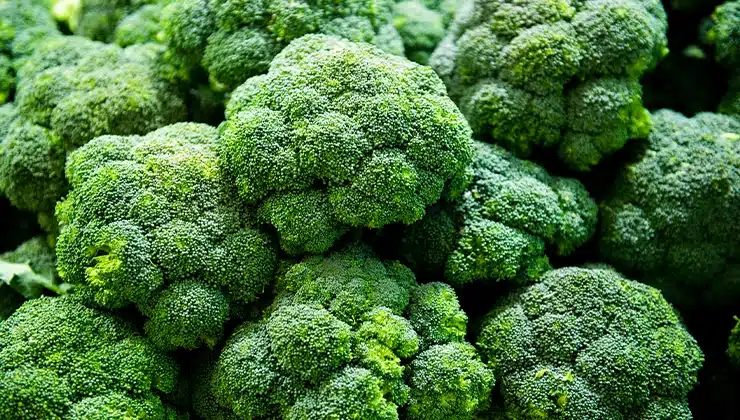
7. Broccoli
Cruciferous veggies like broccoli contain a phytochemical called sulforaphane, which reduces molecules that drive inflammation in your body (9).
One 2020 review suggests a diet rich in sulforaphane could reduce chronic inflammation in people who are overweight or obese who are at a greater risk for diseases including type 2 diabetes and heart disease (10).
8. Turmeric
This yellow spice, which contains an anti-inflammatory compound called curcumin, has long been used in Ayurvedic and Chinese medicine as a natural inflammation fighter.
Curcumin helps manage oxidative and inflammatory conditions including metabolic syndrome, arthritis, and hyperlipidemia, and may also help manage inflammation from exercise and muscle soreness (11).
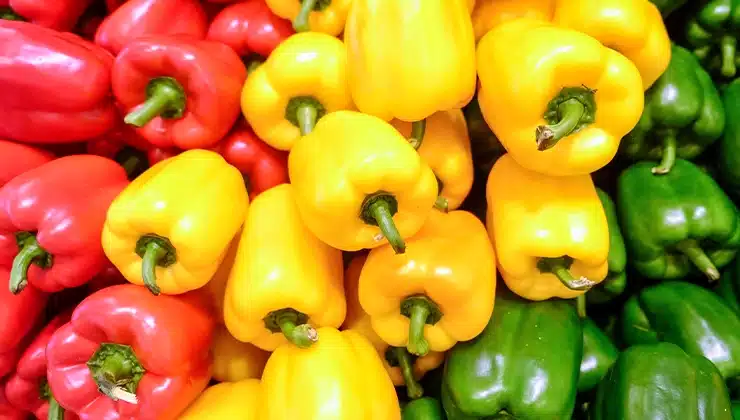
9. Bell Peppers
Bell peppers may improve inflammation thanks to their high vitamin C content. One study found vitamin C can treat and reduce inflammation in adults with hypertension or diabetes (12). Research also suggests vitamin C may protect against diseases with inflammatory components, including heart disease and gout.
10. Bone Broth
Bone broth is packed with amino acids that may reduce inflammation. One 2021 study found bone broth’s anti-inflammatory effects could decrease symptoms in people with the gastrointestinal disease ulcerative colitis (13).
11. Avocados
This creamy fruit is rich in lutein and vitamin E, nutrients which reduce inflammation. One review found lutein inhibited components of inflammation in people with osteoarthritis, while a meta-analysis showed vitamin E has beneficial effects on C-reactive protein—a marker for inflammation—in adults (14,15).
- Oleocanthal, a Phenolic Derived from Virgin Olive Oil: A Review of the Beneficial Effects on Inflammatory Disease
- Anti-inflammatory properties of edible mushrooms: A review
- Natural-Derived Polysaccharides From Plants, Mushrooms, and Seaweeds for the Treatment of Inflammatory Bowel Disease
- Targeting Inflammation by Flavonoids: Novel Therapeutic Strategy for Metabolic Disorders
- An Insight into Anti-Inflammatory Activities and Inflammation Related Diseases of Anthocyanins: A Review of Both In Vivo and In Vitro Investigations
- Impact of Cocoa Consumption on Inflammation Processes—A Critical Review of Randomized Controlled Trials
- Catechins and Their Therapeutic Benefits to Inflammatory Bowel Disease
- Catechin-Rich Green Tea Extract Reduced Intestinal Inflammation and Fasting Glucose in Metabolic Syndrome and Healthy Adults: A Randomized, Controlled, Crossover Trial
- Sulforaphane – role in aging and neurodegeneration
- The Integrative Role of Sulforaphane in Preventing Inflammation, Oxidative Stress and Fatigue: A Review of a Potential Protective Phytochemical
- Curcumin: A Review of Its’ Effects on Human Health
- Effect of vitamin C on inflammation and metabolic markers in hypertensive and/or diabetic obese adults: a randomized controlled trial
- Analysis of the Anti-Inflammatory Capacity of Bone Broth in a Murine Model of Ulcerative Colitis
- Lutein as a Modulator of Oxidative Stress-Mediated Inflammatory Diseases
- The effect of vitamin E supplementation on selected inflammatory biomarkers in adults: a systematic review and meta-analysis of randomized clinical trials


